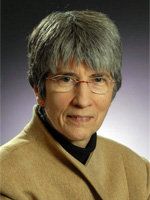
Sandra Black – O.C., O.Ont., D. Sc. h.c., MD, FRCP(C), FRSC, FAAN, FAHA, FANA
Executive Director, TDRA
Sunnybrook Research Institute (SRI), University of Toronto
SRI Profile Baycrest Profile
Dr. Sandra Black is an internationally renowned cognitive and stroke neurologist who holds the inaugural Brill Chair in Neurology, Department of Medicine, University of Toronto and Sunnybrook Health Sciences Centre. Her 25-year research career has bridged dementia and stroke, exploiting advanced neuroimaging techniques for detection, differential diagnosis, monitoring outcomes and studying brain-behaviour relationships, with a recent focus on interactions of aging, small vessel disease, and Alzheimer’s disease. She has received awards for outstanding mentorship of junior faculty, post-doctoral fellows and graduate students.
A leading clinical trialist in dementia, she is the Executive Director of the Toronto Dementia Research Alliance (TDRA), a collaborative network of five memory programs at the University of Toronto. She is the Hurvitz Brain Sciences Research Program Director at the Sunnybrook Research Institute . She is a key founder of the Heart & Stroke Foundation Canadian Partnership for Stroke Recovery , a multi-site, Canada-wide, public-private, non-profit research corporation focused on maximizing stroke recovery, including covert stroke and vascular cognitive impairment.
Dr. Black is on the steering committees and provides core lab services to the Canadian Atherosclerosis Imaging Network (CAIN) and the Canadian Alliance for Healthy Hearts and Minds (CAHHM) through her imaging analysis lab, BrainLab . She is a Theme 2 Co-Lead and executive committee member of the Canadian Consortium on Neurodegeneration in Aging (CCNA) . She serves on the Executive Committee of Ontario Neurodegeneration Disease Research Initiative (ONDRI) of the Ontario Brain Institute (OBI) , co-leads the Mild Cognitive Impairment / Alzheimer’s disease cohort, and her lab is the neuroimaging core for structural imaging analysis in ONDRI. She is a member on the Executive and Data Publication Committees of the Alzheimer’s Disease Neuroimaging Initiative (ADNI) and is Vice Chair of the Scientific Advisory Council of the International Society to Advance Alzheimer’s Research Treatment (ISTAART) , a community of scholars within the Alzheimer Association US. She is also on the Scientific Program Committee of the International Society of Vascular Cognitive and Behavioural Disorders (VASCOG) .
Dr. Black has 400 peer-reviewed publications (Google scholar Index 88, >26,000 citations), and has contributed to a number of published international consensus criteria (e.g. Frontotemporal Degeneration, Primary Progressive Aphasia, Vascular Cognitive Impairment, Small Vessel Disease). She was appointed to the Order of Ontario in 2011 and elected as a Fellow of the Royal Society of Canada in 2012. In 2015, she was appointed Officer in the Order of Canada and also received the Dean’s Alumni Lifetime Achievement Award from the Faculty of Medicine, University of Toronto.
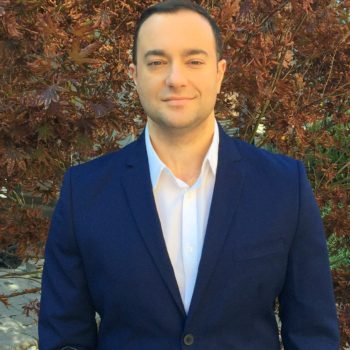
Luca F. Pisterzi – PhD
Program Manager, TDRA
Sunnybrook Health Sciences Centre, University of Toronto
Luca joins the Toronto Dementia Research Alliance after having been the Program Manager for the Canadian Partnership for Tomorrow Project (CPTP) at the Canadian Partnership Against Cancer. CPTP is Canada’s largest population health cohort, which has recruited over 300,000 Canadians from five regional cohorts to study how lifestyle, environment, and several other factors contribute to the risk of developing cancer and chronic disease. In this role, he provided operational support to the regional cohorts, and worked to raise the profile of CPTP among the scientific community. Previously he was a Program Lead in Informatics and Analytics at the Ontario Brain Institute (OBI), where he managed the privacy and data governance initiatives for Brain-CODE, OBI’s informatics platform. Luca was named an Ambassador of the Privacy by Design program developed by the Information and Privacy Commissioner of Ontario in 2014. He received his PhD in biophysics and molecular pharmacology from the Leslie L. Dan Faculty of Pharmacy at the University of Toronto.

Ljubica Zotovic – MD (Serbia)
Project Manager, TDRA
Sunnybrook Health Sciences Centre, University of Toronto

Kim Roos-Assar
Research Administrative Coordinator, TDRA
Sunnybrook Health Sciences Centre

Richard Hegele – MD, FRCPC, PhD
Vice Dean Research and International Relations, Faculty of Medicine University of Toronto (U of T)
U of T Profile

Michael Julius – PhD, BSc
Vice President of Research, Sunnybrook Health Sciences Center (SHSC)
SHSC Profile
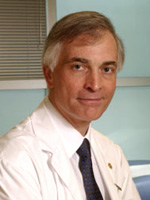
Anthony Lang – MD, FRCPC
Jack Clark Chair for Parkinson’s Disease Research, Professor at University of Toronto
UHN Profile
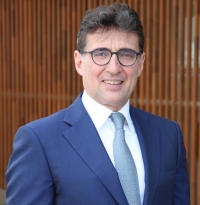
Xavier Montalban – MD, PhD
Director of the Neurology Department at the University of Toronto
U of T Profile

Bruce Pollock – MD, PhD, FRCP(C), FCP
Vice President of Research, Center for Addiction and Mental Health (CAMH)
CAMH Profile

Paula Rochon – MD, FRCPC, MPH, BA
Adjunct Scientist, Kunin-Lunenfeld Applied Research Unit, Baycrest
Baycrest Profile

Arthur Slutsky – MD, MASc, BASc
Vice President of Research, St. Michael’s Hospital (SMH)
SMH Profile
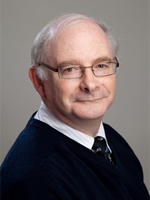
Peter St George Hyslop – MD, FRS, FRSC, FRCPC
Director, Tanz Center for Research in Neurodegenerative Diseases (Tanz)
Tanz Profile
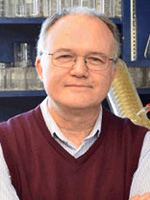
Don Weaver – MD, PhD, FRCP(C), FCIC, FCAHS, DLitt
Director and Senior Scientist, The Toronto Western Research Institute
University Health Network Profile

Trevor Young – MD, PhD, FRCP(C)
Dean, Faculty of Medicine, University of Toronto (U of T)
U of T Profile

Andy Smith – MD, MSc, FRCSC, FACS
Chief Executive Officer, President and Director, Sunnybrook Health Sciences Centre (SHSC)
SHSC Profile

Kevin Smith – MD, PhD
President and Chief Executive Officer, University of Health Network
UHN Profile

Catherine Zahn – MD, PhD, MSc, FRCPC
President and Chief Executive Officer, Center for Addiction and Mental Health (CAMH)
CAMH Profile
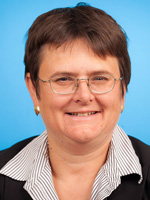
Corinne Fischer – MD
Geriatric Psychiatry, St. Michael Hospital (SMH), University of Toronto
SMH Profile
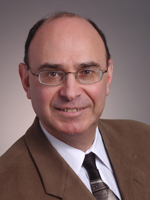
Morris Freedman – MD, FRCP(C)
Behavioral Neurology, Baycrest, Rotman Research Institute
Baycrest Profile

Nathan Herrmann – MD, FRCPC
Head, Division of Geriatric Psychiatry, Sunnybrook Health Sciences Center (SHSC)
SHSC Profile
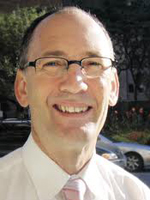
Ron Keren – MD, FRCPC
Geriatric Psychiatry, University Health Network, University of Toronto (U of T)
U of T Profile
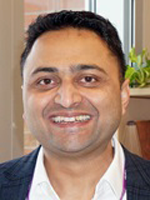
Sanjeev Kumar – MD, FRCPC
Centre for Addiction and Mental Health(CAMH)
CAMH Profile

Krista Lanctot – PhD
Geriatric Psychiatry, Sunnybrook Research Institute (SRI)
SRI Profile

Anthony Lang – MD, FRCPC
Neurology, Movement Disorder, University Health Network (UHN)
UHN Profile
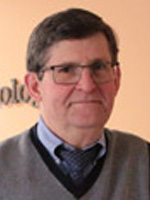
Larry Leach – PhD
Psychologist, York University
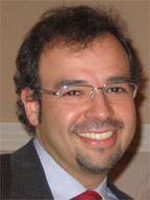
Mario Masellis – MSc, MD, PhD, FRCPC
Neurology, Sunnybrook Research Institute (SRI)
SRI Profile

Mary Pat McAndrews – PhD
Neuropsychology, University Health Network (UHN)
UHN Profile

Randy McIntosh – PhD, MSc, BSc
Neuroscience, Baycrest
Baycrest Profile Lab Page Virtual Brain

Roger McIntyre – MD, FRCPC
Psychiatry, University Health Network (UHN)
UHN Profile
Dr. Roger McIntyre is currently a Professor of Psychiatry and Pharmacology at the University of Toronto and Head of the Mood Disorders Psychopharmacology Unit at the University Health Network, Toronto, Canada. Dr. McIntyre is also Executive Director of the Brain and Cognition Discovery Foundation in Toronto, Canada.Dr. McIntyre was named by Thomson Reuters in 2014 and 2015, as one of “The World’s Most Influential Scientific Minds”. This distinction is given by publishing the largest number of articles that rank among those most frequently cited by researchers globally in 21 broad fields of science and social science during the previous decade.
Dr. McIntyre is involved in multiple research endeavours which primarily aim to characterize the association between mood disorders, notably cognitive function and medical comorbidity. His works broadly aims to characterize the underlying causes of cognitive impairment in individuals with mood disorders and their impact on workplace functioning. This body of work has provided a platform for identifying novel molecular targets to treat and prevent mood disorders and accompanying cognitive impairment.
Dr. McIntyre is extensively involved in medical education. He is a highly sought-after speaker at both national and international meetings. He has received several teaching awards from the University of Toronto, Department of Psychiatry and has been a recipient of the joint Canadian Psychiatric Association (CPA) / Council of Psychiatric Continuing Education Award for the Most Outstanding Continuing Education Activity in Psychiatry in Canada.
Dr. McIntyre is a contributor to the Florida Medicaid Drug Therapy Management Program for Behavioral Health Guidelines for the treatment of adults with Major Depressive Disorder and Bipolar Disorder. Dr. McIntyre is also the co-chair of the Canadian Network for Mood and Anxiety Treatments (CANMAT) Task Force on the Treatment of Comorbidity in Adults with Major Depressive Disorder or Bipolar Disorder and as well a contributor to the CANMAT guidelines for the treatment of Depressive Disorders and Bipolar Disorders. Dr. McIntyre has published hundreds of peer-reviewed articles and has edited and/or co-edited several textbooks on mood disorders.
Dr. McIntyre completed his medical degree at Dalhousie University. He received his Psychiatry residency training and Fellowship in Psychiatric Pharmacology at the University of Toronto.

Benoit H. Mulsant – MD, MS, FRCPC, DFAPA
Centre for Addiction and Mental Health (CAMH)
CAMH Profile
Dr. Benoit H. Mulsant, MD, MS, FRCPC, DFAPA, is Professor and Chair of the Department of Psychiatry, University of Toronto, an Adjunct Professor of Psychiatry at the University of Pittsburgh, and a Senior Scientist at the Centre for Addiction and Mental Health (CAMH) in Toronto.
Dr. Mulsant has authored and co-authored more than 400 peer-reviewed journal articles and 50 book chapters and invited publications. Over the past 25 years, he has been an investigator on grants with external funding totaling more than $140M in direct costs (including more than $75M as principal investigator or team leader) funded, among others, by Brain Canada, the Canada Institutes for Health Research, and the US National Institute of Health. The over-arching goal of his research work has been to improve the treatment of older persons with severe mental disorders. He has a small clinical practice focused on older patients with mood disorders and cognitive disorders (dementia). He has been listed in Best Doctors in America and Best Doctors in Canada.
Dr. Mulsant earned his MD from the School of Medicine, Laval University, Quebec; he completed his internship in internal medicine and neurology at Royal Victoria Hospital, Montreal, and Montreal Neurological Hospital, and his residency in psychiatry at Western Psychiatric Institute and Clinic, University of Pittsburgh. He is a Fellow of the Royal College of Physicians and Surgeons of Canada; a Diplomate in Psychiatry, American Board of Psychiatry and Neurology, with added qualifications in Geriatric Psychiatry; and a Distinguished Fellow of the American Psychiatric Association.
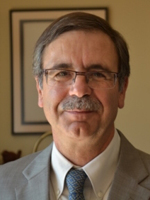
David Munoz – MD, MSc
Pathology, St. Michael’ s Hospital (SMH)
SMH Profile

Gary Naglie – MD, FRCPC, FGSA
Geriatrics, Baycrest, University of Toronto
Baycrest Profile

Bruce Pollock – MD, PhD, FRCP(C), FCP
Geriatric Psychiatry, Centre for Addiction and Mental Health (CAMH)
CAMH Profile
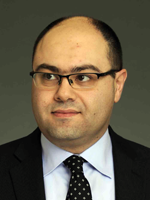
Tarek Rajji – MD, FRCPC
Centre for Addiction and Mental Health (CAMH)
CAMH Profile

Tom Schweizer – PhD
Neuroscience, St. Michael’s Hospital (SMH)
SMH Profile

Kathryn Stokes – PhD, CPsych
Psychologist, Baycrest

Stephen Strother – PhD
Senior Scientist, Rotman Research Institute, Baycrest
Baycrest Professor, Department of Medical Biophysics, University of Toronto (U of T)
Baycrest Profile U of T Profile Lab Page

David Tang-Wai – MDCM, FRCPC
Behavioral Neurology, University Health Network (UHN)
UHN Profile YouTube

Carmela Tartaglia – MD, FRCPC
Behavioural Neurology, University Health Network
UHN Profile Tanz Profile

Aristotle Voineskos – MC, PhD
Psychiatry, Center for Addiction and Mental Health (CAMH)
CAMH Profile






 Email:
Email:
 Telephone:
416-480-6103
Telephone:
416-480-6103
 Mailing Address:
Mailing Address:
